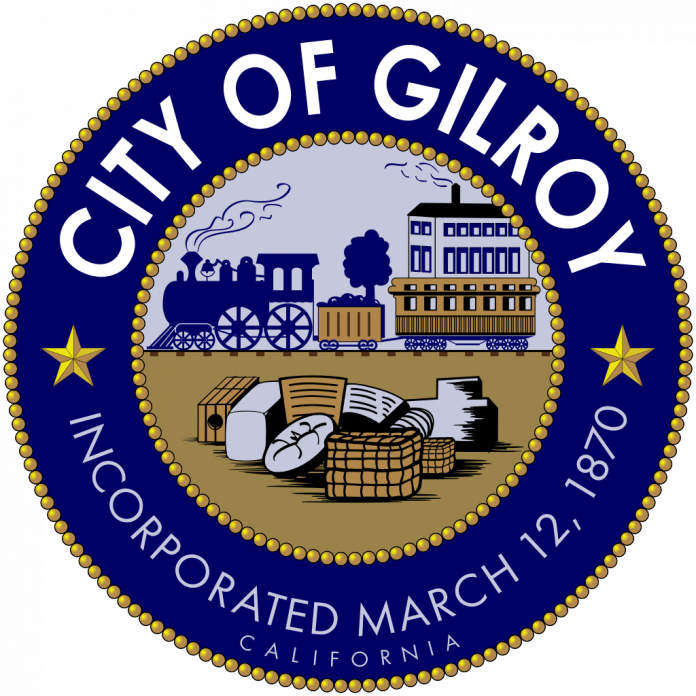GILROY—Mayor Don Gage is unflinching at a public employee union’s threat to strike for two days next month, following an impasse reached during negotiations that began six months ago. In response, a union representative said Wednesday future strikes could be avoided if the city agrees to a few concessions.
City officials announced Oct. 23 that AFSCME Local 101, representing Gilroy water utility workers, streets and parks crews, police dispatchers, building inspectors, recreation employees and office workers with citizen contact, will strike on Nov. 9 and 10. The union argues its Gilroy employees are “significantly undercompensated compared to their counterparts in other cities,” according to LeeAnn McPhillips, the city’s human resources director.
“We’ve already got our strike plans in order and two days is nothing,” Mayor Don Gage told the Dispatch. “We’ll get by for a couple of days … if it was a few months we might have a concern.”
AFSCME Local 101 represents about 100 Gilroy employees. Union representatives and city officials met Tuesday to discuss which essential employees cannot strike in the interest of public health and safety, and both parties made a tentative verbal agreement that 911 dispatchers are critical to the community and can’t join the ranks at the picket lines, McPhillips said Wednesday. Public works employees vital to maintenance and the operation of the city’s water and wastewater systems were also identified as essential but as of press time, a formal agreement was not reached.
“We had a good talk about that and I think there’s a mutual understanding,” McPhillips told the Dispatch. “We’re working to memorialize that in writing and then we’ll get a finalized agreement here shortly.”
The strike comes after the union rejected the city’s “last, best and final offer” of a 2-percent base salary increase and another 2-percent increase on July 1, 2016. The city’s offer also included a 5-percent increase in the city’s contribution toward employee medical and dental benefits, McPhillips said. AFSCME Local 101 business agent John Tucker called the offer “inequitable.” The union is seeking a 4-percent base salary increase each year for the next three years.
Charles Sakai, a San Francisco-based attorney representing the city, formally declared the impasse in an Oct. 5 letter to AFSCME leadership.
Union members voted overwhelmingly Oct. 20 to reject the city’s final offer, and in a separate vote authorized a strike, interim city administrator Ed Tewes said. Any future strikes would require another vote by union membership.
“They want 12.5 percent compounded over the next three years. We’re just not going to do it,” Gage said of the increase the union is requesting. “We’ve got to stay within our budget. If we gave them what they’re asking for, we’d have to lay people off or cut some sorts of services.”
A two-day strike, Gage said, will not significantly impact city operations. Managers can fill in for striking employees and rotate positions around to maintain essential services, he said.
Less than 8 percent of union membership voted to accept the city’s final offer, with 94 percent of members voting, according to Tucker. Another vote by union members would be required to authorize any further strikes. When asked about the chances of future strikes, Tucker stated, “Through conversations I’ve had with members, it seems to be likely.”
AFSCME Local 101 asked the city to conduct a comprehensive salary and staffing study to see how Gilroy public employee compensation compares to others in the market beyond a prior survey of 10 nearby cities.
But the city declined to conduct the study, saying there is not enough evidence Gilroy’s salaries are lagging behind. Based on a comparison of the union’s salaries with other local government agencies, McPhillips said the city’s compensation package is “competitive and in market.”
Tewes also said the city’s final offer is “reasonable and fair to employees and taxpayers alike.”
“If they’d be willing to do that survey, that’s all it would take to get us back to work,” Tucker said. “We’d be willing to make concessions, to agree to a one-year deal for a wage increase more in the neighborhood of what they [the city] are talking about, if they would do the salary survey that can show a number of front-line employees are significantly under-market.”
Sakai made it clear, in a letter on behalf of the city, that the 4-percent annual increases the union wants are not consistent with salary increases negotiated among the city’s other labor groups. A 2-percent base salary increase was given to all other city employees earlier this year, including police, fire and members of the Gilroy Management Association.
Sakai told AFSCME leadership that their unwillingness to modify their wage proposal led to the impasse.
Gage stressed that granting AFSCME Local 101 higher salary increases compared to other labor unions—would be unfair and an unwise fiscal move.
“To me, it would be a disservice to give them more because they’ve been getting regular raises like everybody else. And they’re being paid above average,” he said. “I think the public would be very disappointed in the city [if we approved this]. We don’t have money to waste.”
As the strike approaches, city officials said they hope the issues will be hammered out by then. The informal negotiation process has served the city and its labor unions well over the last few years, and has not led to service disruptions or strikes, Gage said.
Despite the impasse, McPhillips said Wednesday she was “not aware of any situation that work stoppages are occurring or holding up services to the community, other than what they have planned Nov. 9 and 10.”
“The comments and actions of the mayor make me cautious, but we’re hoping that cooler heads prevail here,” Tucker said.















